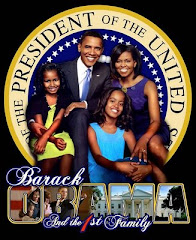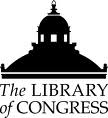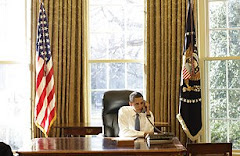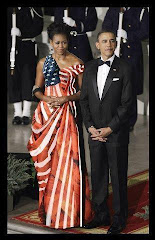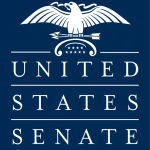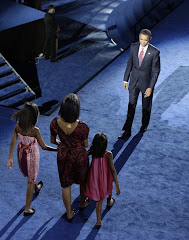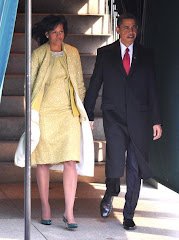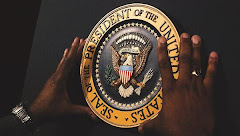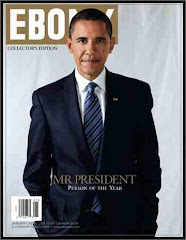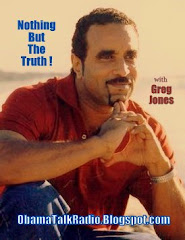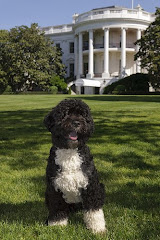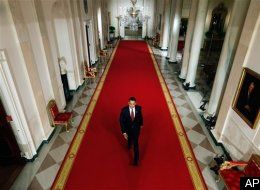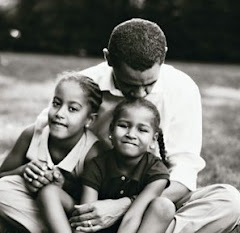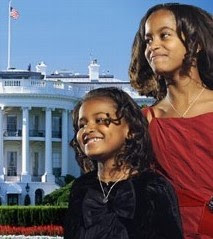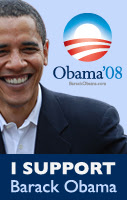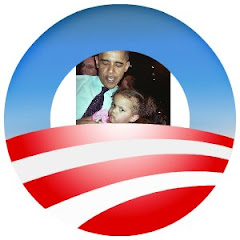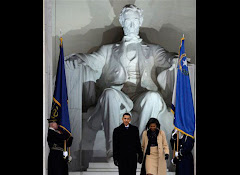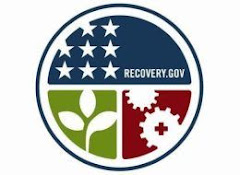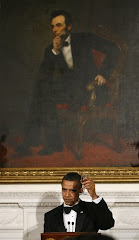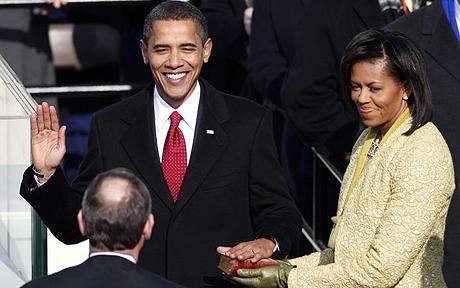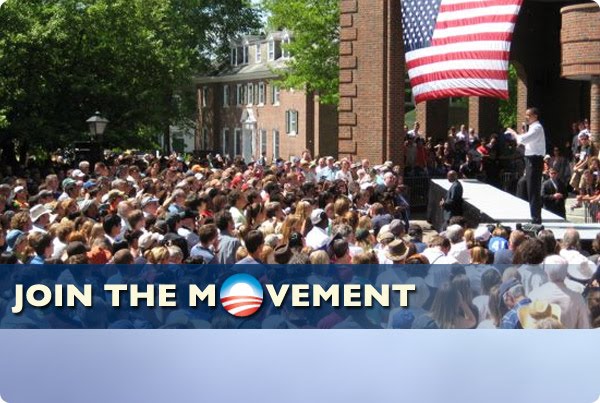3:30 P.M. (Local)
PRESIDENT OBAMA: Mr. Speaker, Madam Deputy Speaker, distinguished members, I am honored to speak in this chamber, and I am committed to renewing the alliance between our nations and the friendship between our people.
This is my first trip overseas as President of the United States. I've been to the G20 summit in London, and the NATO summit in Strasbourg, and the European Union summit in Prague. Some people have asked me if I chose to continue my travels to Ankara and Istanbul to send a message to the world. And my answer is simple: Evet -- yes. (Applause.) Turkey is a critical ally. Turkey is an important part of Europe. And Turkey and the United States must stand together -- and work together -- to overcome the challenges of our time.
This morning I had the great privilege of visiting the tomb of your extraordinary founder of your republic. And I was deeply impressed by this beautiful memorial to a man who did so much to shape the course of history. But it is also clear that the greatest monument to Ataturk's life is not something that can be cast in stone and marble. His greatest legacy is Turkey's strong, vibrant, secular democracy, and that is the work that this assembly carries on today. (Applause.)
This future was not easily assured, it was not guaranteed. At the end of World War I, Turkey could have succumbed to the foreign powers that were trying to claim its territory, or sought to restore an ancient empire. But Turkey chose a different future. You freed yourself from foreign control, and you founded a republic that commands the respect of the United States and the wider world.
And there is a simple truth to this story: Turkey's democracy is your own achievement. It was not forced upon you by any outside power, nor did it come without struggle and sacrifice. Turkey draws strength from both the successes of the past, and from the efforts of each generation of Turks that makes new progress for your people.
Now, my country's democracy has its own story. The general who led America in revolution and governed as our first President was, as many of you know, George Washington. And like you, we built a grand monument to honor our founding father -- a towering obelisk that stands in the heart of the capital city that bears Washington's name. I can see the Washington Monument from the window of the White House every day.
It took decades to build. There were frequent delays. Over time, more and more people contributed to help make this monument the inspiring structure that still stands tall today. Among those who came to our aid were friends from all across the world who offered their own tributes to Washington and the country he helped to found.
And one of those tributes came from Istanbul. Ottoman Sultan Abdulmecid sent a marble plaque that helped to build the Washington Monument. Inscribed in the plaque was a poem that began with a few simple words: "So as to strengthen the friendship between the two countries." Over 150 years have passed since those words were carved into marble. Our nations have changed in many ways. But our friendship is strong, and our alliance endures.
It is a friendship that flourished in the years after World War II, when President Truman committed our nation to the defense of Turkey's freedom and sovereignty, and Turkey committed itself into the NATO Alliance. Turkish troops have served by our side from Korea to Kosovo to Kabul. Together, we withstood the great test of the Cold War. Trade between our nations has steadily advanced. So has cooperation in science and research.
The ties among our people have deepened, as well, and more and more Americans of Turkish origin live and work and succeed within our borders. And as a basketball fan, I've even noticed that Hedo Turkoglu and Mehmet Okur have got some pretty good basketball games. (Applause.)
The United States and Turkey have not always agreed on every issue, and that's to be expected -- no two nations do. But we have stood together through many challenges over the last 60 years. And because of the strength of our alliance and the endurance of our friendship, both America and Turkey are stronger and the world is more secure.
Now, our two democracies are confronted by an unprecedented set of challenges: An economic crisis that recognizes no borders; extremism that leads to the killing of innocent men and women and children; strains on our energy supply and a changing climate; the proliferation of the world's deadliest weapons; and the persistence of tragic conflict.
These are the great tests of our young century. And the choices that we make in the coming years will determine whether the future will be shaped by fear or by freedom; by poverty or by prosperity; by strife or by a just, secure and lasting peace.
This much is certain: No one nation can confront these challenges alone, and all nations have a stake in overcoming them. That is why we must listen to one another, and seek common ground. That is why we must build on our mutual interests, and rise above our differences. We are stronger when we act together. That is the message that I've carried with me throughout this trip to Europe. That is the message that I delivered when I had the privilege of meeting with your President and with your Prime Minister. That will be the approach of the United States of America going forward.
Already, America and Turkey are working with the G20 on an unprecedented response to an unprecedented economic crisis. Now, this past week, we came together to ensure that the world's largest economies take strong and coordinated action to stimulate growth and restore the flow of credit; to reject the pressures of protectionism, and to extend a hand to developing countries and the people hit hardest by this downturn; and to dramatically reform our regulatory system so that the world never faces a crisis like this again.
As we go forward, the United States and Turkey can pursue many opportunities to serve prosperity for our people. The President and I this morning talked about expanding the ties of commerce and trade. There's enormous opportunity when it comes to energy to create jobs. And we can increase new sources to not only free ourselves from dependence of other energies -- other countries' energy sources, but also to combat climate change. We should build on our Clean Technology Fund to leverage efficiency and renewable energy investments in Turkey. And to power markets in Turkey and Europe, the United States will continue to support your central role as an East-West corridor for oil and natural gas.
This economic cooperation only reinforces the common security that Europe and the United States share with Turkey as a NATO ally, and the common values that we share as democracies. So in meeting the challenges of the 21st century, we must seek the strength of a Europe that is truly united, peaceful and free.
So let me be clear: The United States strongly supports Turkey's bid to become a member of the European Union. (Applause.) We speak not as members of the EU, but as close friends of both Turkey and Europe. Turkey has been a resolute ally and a responsible partner in transatlantic and European institutions. Turkey is bound to Europe by more than the bridges over the Bosphorous. Centuries of shared history, culture, and commerce bring you together. Europe gains by the diversity of ethnicity, tradition and faith -- it is not diminished by it. And Turkish membership would broaden and strengthen Europe's foundation once more.
Now, of course, Turkey has its own responsibilities. And you've made important progress towards membership. But I also know that Turkey has pursued difficult political reforms not simply because it's good for EU membership, but because it's right for Turkey.
In the last several years, you've abolished state security courts, you've expanded the right to counsel. You've reformed the penal code and strengthened laws that govern the freedom of the press and assembly. You've lifted bans on teaching and broadcasting Kurdish, and the world noted with respect the important signal sent through a new state Kurdish television station.
These achievements have created new laws that must be implemented, and a momentum that should be sustained. For democracies cannot be static -- they must move forward. Freedom of religion and expression lead to a strong and vibrant civil society that only strengthens the state, which is why steps like reopening Halki Seminary will send such an important signal inside Turkey and beyond. An enduring commitment to the rule of law is the only way to achieve the security that comes from justice for all people. Robust minority rights let societies benefit from the full measure of contributions from all citizens.
I say this as the President of a country that not very long ago made it hard for somebody who looks like me to vote, much less be President of the United States. But it is precisely that capacity to change that enriches our countries. Every challenge that we face is more easily met if we tend to our own democratic foundation. This work is never over. That's why, in the United States, we recently ordered the prison at Guantanamo Bay closed. That's why we prohibited -- without exception or equivocation -- the use of torture. All of us have to change. And sometimes change is hard.
Another issue that confronts all democracies as they move to the future is how we deal with the past. The United States is still working through some of our own darker periods in our history. Facing the Washington Monument that I spoke of is a memorial of Abraham Lincoln, the man who freed those who were enslaved even after Washington led our Revolution. Our country still struggles with the legacies of slavery and segregation, the past treatment of Native Americans.
Human endeavor is by its nature imperfect. History is often tragic, but unresolved, it can be a heavy weight. Each country must work through its past. And reckoning with the past can help us seize a better future. I know there's strong views in this chamber about the terrible events of 1915. And while there's been a good deal of commentary about my views, it's really about how the Turkish and Armenian people deal with the past. And the best way forward for the Turkish and Armenian people is a process that works through the past in a way that is honest, open and constructive.
We've already seen historic and courageous steps taken by Turkish and Armenian leaders. These contacts hold out the promise of a new day. An open border would return the Turkish and Armenian people to a peaceful and prosperous coexistence that would serve both of your nations. So I want you to know that the United States strongly supports the full normalization of relations between Turkey and Armenia. It is a cause worth working towards.
It speaks to Turkey's leadership that you are poised to be the only country in the region to have normal and peaceful relations with all the South Caucasus nations. And to advance that peace, you can play a constructive role in helping to resolve the Nagorno-Karabakh conflict, which has continued for far too long.
Advancing peace also includes the disputes that persist in the Eastern Mediterranean. And here there's a cause for hope. The two Cypriot leaders have an opportunity through their commitment to negotiations under the United Nations Good Offices Mission. The United States is willing to offer all the help sought by the parties as they work towards a just and lasting settlement that reunifies Cyprus into a bizonal and bicommunal federation.
These efforts speak to one part of the critical region that surrounds Turkey. And when we consider the challenges before us, on issue after issue, we share common goals.
In the Middle East, we share the goal of a lasting peace between Israel and its neighbors. Let me be clear: The United States strongly supports the goal of two states, Israel and Palestine, living side by side in peace and security. That is a goal shared by Palestinians, Israelis, and people of goodwill around the world. That is a goal that the parties agreed to in the road map and at Annapolis. That is a goal that I will actively pursue as President of the United States.
We know the road ahead will be difficult. Both Israelis and Palestinians must take steps that are necessary to build confidence and trust. Both Israelis and Palestinians, both must live up to the commitments they have made. Both must overcome longstanding passions and the politics of the moment to make progress towards a secure and lasting peace.
The United States and Turkey can help the Palestinians and Israelis make this journey. Like the United States, Turkey has been a friend and partner in Israel's quest for security. And like the United States, you seek a future of opportunity and statehood for the Palestinians. So now, working together, we must not give into pessimism and mistrust. We must pursue every opportunity for progress, as you've done by supporting negotiations between Syria and Israel. We must extend a hand to those Palestinians who are in need, while helping them strengthen their own institutions. We must reject the use of terror, and recognize that Israel's security concerns are legitimate.
The peace of the region will also be advanced if Iran forgoes any nuclear weapons ambitions. Now, as I made clear in Prague yesterday, no one is served by the spread of nuclear weapons, least of all Turkey. You live in a difficult region and a nuclear arm race would not serve the security of this nation well. This part of the world has known enough violence. It has known enough hatred. It does not need a race for an ever-more powerful tool of destruction.
Now, I have made it clear to the people and leaders of the Islamic Republic of Iran that the United States seeks engagement based on mutual interest and mutual respect. We want Iran to play its rightful role in the community of nations. Iran is a great civilization. We want them to engage in the economic and political integration that brings prosperity and security. But Iran's leaders must choose whether they will try to build a weapon or build a better future for their people.
So both Turkey and the United States support a secure and united Iraq that does not serve as a safe haven for terrorists. I know there were differences about whether to go to war. There were differences within my own country, as well. But now we must come together as we end this war responsibly, because the future of Iraq is inseparable from the future of the broader region. As I've already announced, and many of you are aware, the United States will remove our combat brigades by the end of next August, while working with the Iraqi government as they take responsibility for security. And we will work with Iraq, Turkey, and all Iraq's neighbors, to forge a new dialogue that reconciles differences and advances our common security.
Make no mistake, though: Iraq, Turkey, and the United States face a common threat from terrorism. That includes the al Qaeda terrorists who have sought to drive Iraqis apart and destroy their country. That includes the PKK. There is no excuse for terror against any nation. (Applause.) As President, and as a NATO ally, I pledge that you will have our support against the terrorist activities of the PKK or anyone else. These efforts will be strengthened by the continued work to build ties of cooperation between Turkey, the Iraqi government, and Iraq's Kurdish leaders, and by your continued efforts to promote education and opportunity and democracy for the Kurdish population here inside Turkey.
Finally, we share the common goal of denying al Qaeda a safe haven in Pakistan or Afghanistan. The world has come too far to let this region backslide, and to let al Qaeda terrorists plot further attacks. That's why we are committed to a more focused effort to disrupt, dismantle, and defeat al Qaeda. That is why we are increasing our efforts to train Afghans to sustain their own security, and to reconcile former adversaries. That's why we are increasing our support for the people of Afghanistan and Pakistan, so that we stand on the side not only of security, but also of opportunity and the promise of a better life.
Turkey has been a true partner. Your troops were among the first in the International Security Assistance Force. You have sacrificed much in this endeavor. Now we must achieve our goals together. I appreciate that you've offered to help us train and support Afghan security forces, and expand opportunity across the region. Together, we can rise to meet this challenge like we have so many before.
I know there have been difficulties these last few years. I know that the trust that binds the United States and Turkey has been strained, and I know that strain is shared in many places where the Muslim faith is practiced. So let me say this as clearly as I can: The United States is not, and will never be, at war with Islam. (Applause.) In fact, our partnership with the Muslim world is critical not just in rolling back the violent ideologies that people of all faiths reject, but also to strengthen opportunity for all its people.
I also want to be clear that America's relationship with the Muslim community, the Muslim world, cannot, and will not, just be based upon opposition to terrorism. We seek broader engagement based on mutual interest and mutual respect. We will listen carefully, we will bridge misunderstandings, and we will seek common ground. We will be respectful, even when we do not agree. We will convey our deep appreciation for the Islamic faith, which has done so much over the centuries to shape the world -- including in my own country. The United States has been enriched by Muslim Americans. Many other Americans have Muslims in their families or have lived in a Muslim-majority country -- I know, because I am one of them. (Applause.)
Above all, above all we will demonstrate through actions our commitment to a better future. I want to help more children get the education that they need to succeed. We want to promote health care in places where people are vulnerable. We want to expand the trade and investment that can bring prosperity for all people. In the months ahead, I will present specific programs to advance these goals. Our focus will be on what we can do, in partnership with people across the Muslim world, to advance our common hopes and our common dreams. And when people look back on this time, let it be said of America that we extended the hand of friendship to all people.
There's an old Turkish proverb: "You cannot put out fire with flames." America knows this. Turkey knows this. There's some who must be met by force, they will not compromise. But force alone cannot solve our problems, and it is no alternative to extremism. The future must belong to those who create, not those who destroy. That is the future we must work for, and we must work for it together.
I know there are those who like to debate Turkey's future. They see your country at the crossroads of continents, and touched by the currents of history. They know that this has been a place where civilizations meet, and different peoples come together. They wonder whether you will be pulled in one direction or another.
But I believe here is what they don't understand: Turkey's greatness lies in your ability to be at the center of things. This is not where East and West divide -- this is where they come together. (Applause.) In the beauty of your culture. In the richness of your history. In the strength of your democracy. In your hopes for tomorrow.
I am honored to stand here with you -- to look forward to the future that we must reach for together -- and to reaffirm America's commitment to our strong and enduring friendship. Thank you very much. (Applause.) Thank you. Thank you.
END 3:55 P.M. (Local)








